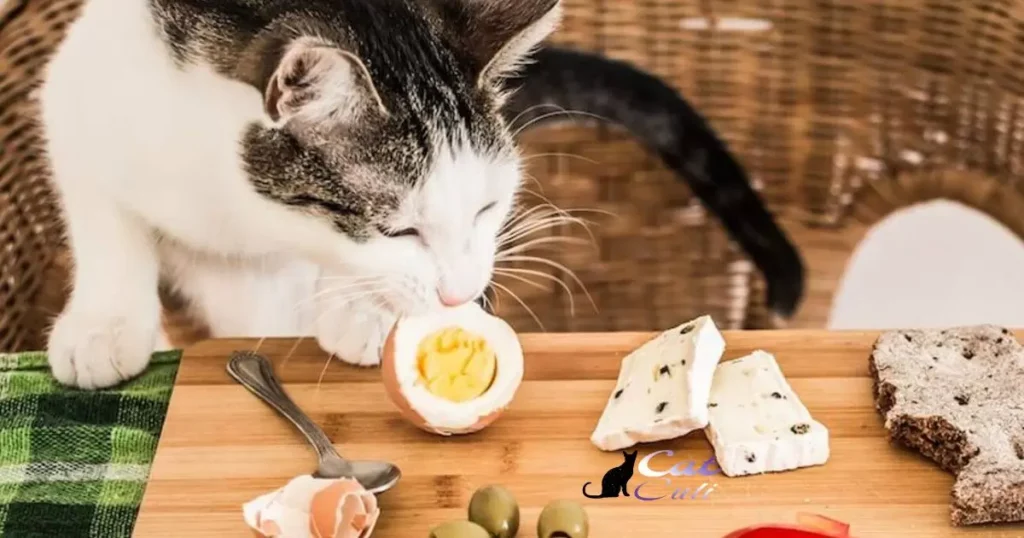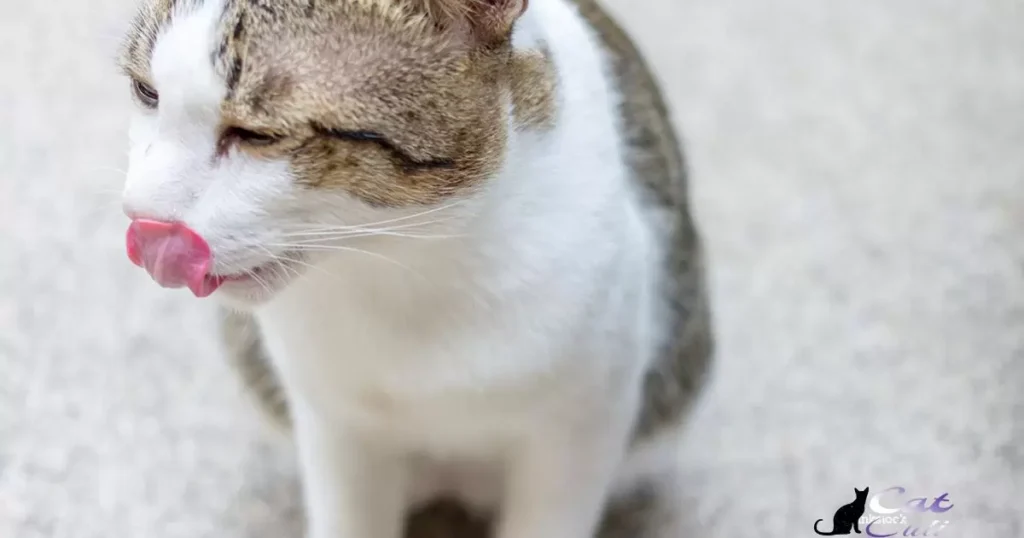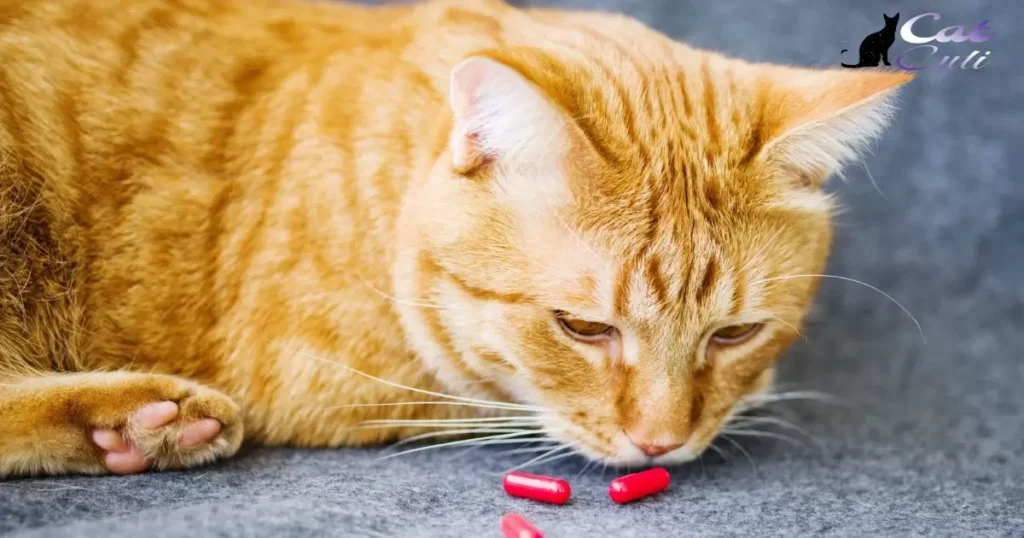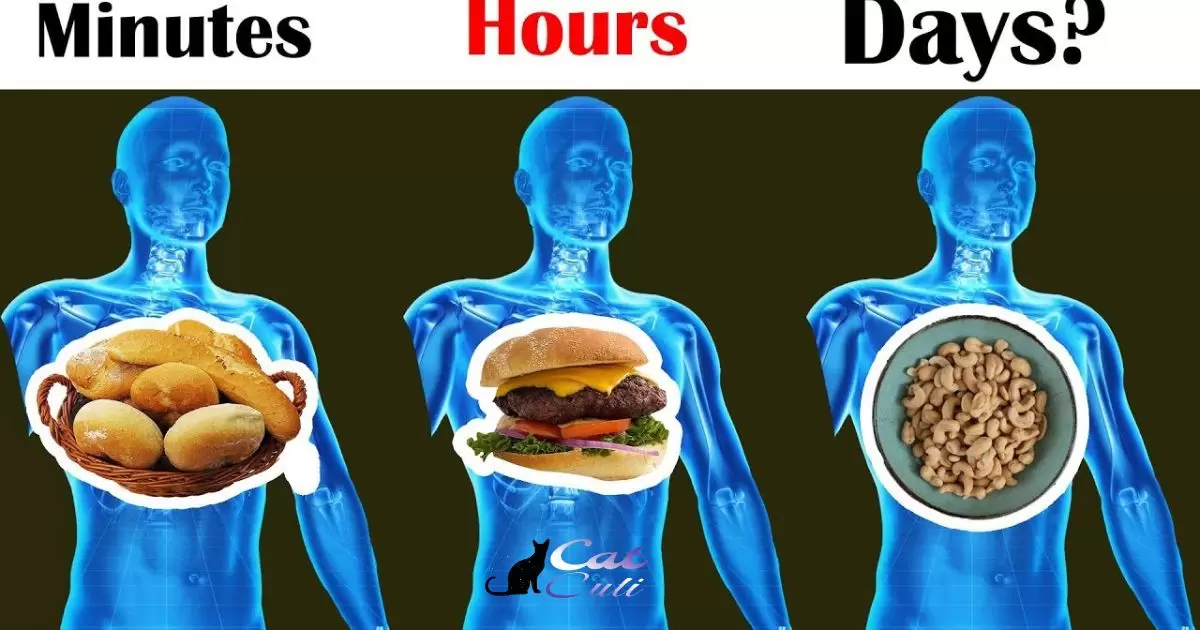A cat’s digestion of food usually takes about 12 to 24 hours. This process starts when they eat and ends when they eliminate waste. Factors like age, health, and diet can affect digestion speed. Overall, a cat’s digestive system works efficiently but varies based on individual traits.
Have you ever wondered, How long does a cat take to digest food? Understanding this timetable can unveil the secrets of your feline friend’s digestive prowess. From the moment they nibble on their meal to the time nature calls, a cat’s digestive clock ticks away, revealing a fascinating journey within their system.
Typically ranging from 12 to 24 hours, a cat’s digestion begins with mealtime and culminates in waste elimination. Factors like health, age, and diet can influence this timeline. Stay with us to explore more about your cat’s digestion and what affects this fascinating digestive journey.
How Long Does Digestion Take In Cats?
In cats, digestion typically lasts between 12 to 24 hours. They start digesting food as soon as they eat it. Factors such as age, health, and the type of food they consume can affect how long it takes. Kittens generally have faster digestion compared to older cats. Understanding a cat’s digestion helps in managing their diet and health effectively.
A cat’s digestive process begins upon eating and finishes when waste is expelled. The time it takes for this journey depends on various factors unique to each cat. Monitoring their digestion duration aids in ensuring they receive proper nutrition and identifying any potential health concerns early on.
What Causes Digestion Problems In Cats?
Digestion problems in cats stem from various issues. Sudden dietary changes or consuming spoiled food can upset their stomachs. Hairballs, a common culprit, can obstruct the digestive tract. Stress or anxiety might also lead to digestive issues in cats.
Furthermore, underlying health conditions, such as pancreatitis or inflammatory bowel disease, can trigger digestion problems. Keep an eye on your cat’s diet, stress levels, and any changes in behavior to help prevent and address these digestive concerns promptly.
How Often Should You Feed Your Cat?
Feeding your cat depends on age and health. Adult cats usually eat twice a day, while kittens need more frequent meals about three to four times daily. It’s essential to follow a consistent schedule for feeding to maintain their health and regulate their hunger.
Monitoring their weight and consulting a vet helps determine the right feeding frequency for your cat’s specific needs.
Avoid sudden changes in their feeding routine. Gradually adjust meal times if needed, especially for older cats. An appropriate feeding schedule provides structure and helps prevent overeating or underfeeding, ensuring your cat stays healthy and content.
Signs Of Cat Digestive Problems
- Vomiting: Frequent or persistent vomiting beyond hairballs could indicate digestive issues.
- Diarrhea: Changes in stool consistency or frequent diarrhea may signal underlying problems.
- Constipation: Straining or infrequent bowel movements might suggest digestive troubles.
- Lack of Appetite: Refusing meals or sudden disinterest in food could be a sign of digestive discomfort.
- Weight Loss: Unexplained weight loss despite a consistent diet might point to digestive issues.
- Lethargy: A lack of energy or decreased activity levels could accompany digestive problems.
- Changes in Behavior: Unusual behaviours such as hiding or increased irritability might indicate discomfort in digestion.
- Bad Breath: Persistent foul breath not improved by dental care could be linked to digestive issues.
What Should Cats Eat?

Cats thrive on a balanced diet rich in protein, which they primarily obtain from meat. They need essential amino acids like taurine, found in animal tissues, to maintain good health. A diet lacking in taurine can lead to severe health issues in cats, affecting their heart and eyesight.
It’s crucial to feed them a mix of high-quality commercial cat food or a well-prepared homemade diet that fulfils their nutritional needs.Water intake is vital for cats. Providing fresh water alongside their meals is essential as it helps maintain their hydration levels and supports healthy kidney function.
A diet consisting mainly of wet or canned food can also contribute to their water intake, promoting better overall health for your feline companion.
How To Support Your Cat’s Digestion
Supporting your cat’s digestion involves simple yet crucial steps. Firstly, maintain a consistent feeding schedule, offering balanced meals rich in protein and fibre. Ensure they stay hydrated by providing fresh water regularly. Promote exercise to keep their digestive system active and healthy.
Consider incorporating probiotics or digestive supplements into their diet, upon vet consultation, especially if concerned about Canned Cat Food Cause Diarrhea. These aids can enhance gut health, aiding in smoother digestion. A well-regulated diet and an active lifestyle are keys to supporting your cat’s digestive well-being.
Discover The Benefits Of Friendly Bacteria
| Benefits of Friendly Bacteria |
| Improved Digestion: |
| Helps break down food and absorb nutrients efficiently. |
| Enhanced Immunity: |
| Supports a stronger immune system, defending against infections. |
| Balanced Gut Flora: |
| Maintains a healthy balance of gut bacteria for overall wellness. |
| Reduced Inflammation: |
| May help alleviate inflammation and related issues in the body. |
| Synthesis of Vitamins: |
| Aids in the production of certain vitamins essential for health. |
| Supports Mental Health: |
| Linked to improved mood and mental well-being. |
| Potential Allergy Reduction: |
| Might assist in reducing allergy symptoms. |
| Promotes Skin Health: |
| Contributes to healthier skin from within. |
Shop Cat Food For Sensitive Digestion
Looking for cat food for sensitive digestion? Choose food specially formulated for sensitive stomachs. These diets often contain easily digestible ingredients like rice or protein sources like chicken or turkey. Check for options labelled as “gentle” or “for sensitive stomachs” to ensure you’re giving your cat the best for their digestion.
When selecting cat food for sensitive digestion, prioritize simplicity and quality. Look for limited ingredient formulas without artificial additives. Opting for easily digestible proteins and carefully selected ingredients can make a significant difference in your cat’s digestive health.
Keeping Your Cat’s Digestive System Healthy
To keep your cat’s digestive system healthy, offer a balanced diet rich in nutrients and fiber. Ensure meals are regular, avoiding sudden changes that might upset their stomach.
Incorporate occasional probiotics or digestive supplements recommended by your vet for added gut health. Encourage hydration by providing fresh water sources throughout the day to aid digestion.
Regular exercise is crucial in maintaining your cat’s digestive health. Engage them in playful activities to stimulate their system and prevent constipation. A healthy digestive system leads to a happy and contented feline companion.
The Digestive System Of A Cat
A cat’s digestive system efficiently breaks down food for nourishment. It all begins in the mouth, where chewing initiates digestion. From there, food travels down the oesophagus into the stomach, where powerful acids aid in breaking it down further.
After the stomach, digestion continues in the small intestine, where nutrients are absorbed into the bloodstream. The waste then moves into the large intestine before exiting the body. Overall, a cat’s digestive system plays a crucial role in extracting nutrients from food for energy and growth.
The 7 Important Parts Of The Cat’s Digestive System
- Mouth: Where digestion begins with chewing and saliva mixing with food.
- Esophagus: A tube that carries food from the mouth to the stomach.
- Stomach: Contains strong acids and enzymes that break down food.
- Small Intestine: Where most digestion and absorption of nutrients occur.
- Pancreas: Produces enzymes aiding in digestion within the small intestine.
- Liver: Produces bile, aiding in the breakdown of fats.
- Large Intestine: Absorbs water and forms faeces, preparing waste for elimination.
Did Your Cat Eat Something Weird?

Has your cat eaten something odd? Cats can ingest unusual items, causing concern for their health. Keep an eye out for signs like vomiting, diarrhea, or lethargy, and contact your vet if you notice any unusual behavior. Monitoring their eating habits and seeking prompt attention can help ensure your cat’s well-being.
Sometimes, cats munch on unexpected things. Watch for any changes in behavior or digestion problems, and get in touch with your vet if you spot any red flags. Being vigilant and quick to seek advice can safeguard your cat’s health from any unexpected dietary adventures.
Does Your Dog Have An Appetite For Life?
Is your dog always hungry for life’s adventures? Their endless enthusiasm and curiosity are signs of a vibrant appetite for life. From tail-wagging excitement at the sight of a leash to the eagerness to explore new places, your furry companion’s zest for life is palpable in their actions.
Their playful demeanour and constant quest for joyous moments showcase an insatiable appetite for all that life has to offer.The sparkle in your dog’s eyes and their boundless energy speak volumes about their appetite for life.
Whether it’s the sheer joy in chasing a ball or the eagerness to greet you after a long day, their enthusiasm is infectious. Their love for life reflects in every wag of the tail and every paw print left on the path of shared experiences.
Why Do Dogs Eat Poop And Other Gross Stuff?
Dogs eat poop and other gross stuff because of instinctual behaviours like scavenging and exploring. They might do it out of curiosity or to investigate new scents. Sometimes, it’s related to dietary deficiencies, prompting them to seek missing nutrients in unusual places.
This behaviour can also stem from boredom or anxiety, leading dogs to engage in unconventional eating habits. Puppies often explore the world through their mouths, which might involve tasting unpleasant things like poop. Understanding these reasons helps in addressing and managing this behaviour in our furry companions.
Are Batteries Poisonous For Dogs?
Batteries pose a poisoning risk for dogs. When chewed or ingested, batteries release harmful chemicals like acid that can damage a dog’s mouth and gastrointestinal tract. These chemicals can lead to severe injuries or even fatal consequences, making it crucial to keep batteries out of a dog’s reach.
If a dog ingests a battery, immediate veterinary attention is necessary. Symptoms may include drooling, vomiting, difficulty swallowing, or abdominal pain. Acting swiftly can prevent further harm and ensure proper treatment to safeguard your furry friend’s health.
Tips For Maintaining Good Digestive Health In Cats
| Tips for Maintaining Good Digestive Health in Cats |
| 1. High-Quality Diet: Provide a balanced diet with high-quality cat food rich in proteins and essential nutrients. |
| 2. Portion Control: Offer meals in appropriate portions to prevent overeating or obesity-related digestive issues. |
| 3. Hydration: Ensure access to fresh water at all times to keep your cat hydrated, aiding in digestion. |
| 4. Regular Vet Check-ups: Schedule routine check-ups with a veterinarian to monitor your cat’s digestive health. |
| 5. Slow Transition of Foods: Introduce new foods gradually to prevent digestive upset or allergies. |
| 6. Provide Digestive Supplements: Consider incorporating probiotics or digestive supplements recommended by your vet. |
| 7. Reduce Stress: Create a stress-free environment to minimize digestive issues related to anxiety or stress. |
How Long Does It Take For A Cat To Digest Wet Food
When a cat eats wet food, digestion usually takes about 8 to 10 hours. Their stomach breaks down the food quickly due to its moisture content. The digestive process begins when they eat and ends when waste is eliminated. Cats generally process wet food efficiently within a relatively short span of time.
Factors such as the cat’s health, age, and the specific composition of the food can influence how long it takes for their system to fully digest the wet food. But overall, a cat’s digestive system swiftly handles wet food, ensuring they get the nutrients they need without delay.
How Long Does It Take For A Kitten To Digest Food And Poop
Kittens usually digest food within about 3 to 6 hours after eating. Once they’ve finished their meal, their tiny digestive systems get to work, breaking down the nutrients rapidly. Within this short span, their bodies extract what they need and prepare to expel waste efficiently.
When it comes to pooping, kittens tend to do so relatively quickly after eating. It takes around 30 minutes to a few hours for a kitten to process food and have a bowel movement. Their young bodies are efficient, swiftly turning food into energy and waste, keeping their systems in sync and healthy.
How Long Does It Take For A Cat To Digest A Pill

Administering a pill to a cat raises the question: “How long does it take for a cat to digest a pill?A cat’s digestive system breaks down a pill within 20 to 30 minutes. This duration can vary based on factors such as the type of medication and the cat’s individual metabolism. Monitoring your cat post-pill ingestion helps ensure the medicine is digested effectively.
Knowing how swiftly a cat’s system processes medication aids in understanding their treatment. Generally, a cat’s body works efficiently, breaking down a pill relatively quickly. Observing your cat’s behaviour after giving a pill provides insights into their digestion rate, ensuring the medication works as intended.
How Long Does It Take For A Cat To Pass An Object
When a cat swallows something unusual, it usually takes a day or two to pass through their system. The object moves along their digestive tract until it’s eliminated through stool. Sometimes, smaller items might pass within 24 hours, while larger ones may take longer, requiring veterinary attention if they don’t pass naturally.
If your cat ingests something odd, monitor them closely. Watch for signs like vomiting, lack of appetite, or changes in behavior. Promptly contacting a vet is crucial if you suspect an issue. Usually, small objects pass on their own, but vigilance ensures your cat’s health and well-being.
How Long Does It Take For A Cat To Digest Water
Cats digest water pretty quickly, taking around 6 to 8 hours for it to pass through their system. Once they drink, water gets absorbed into their body within a few minutes. The digestive process doesn’t involve breaking down water like food, so it moves through their system rapidly, keeping them hydrated and supporting their bodily functions.
Your cat’s digestion of water happens swiftly, unlike food, as it doesn’t require complex breakdown. From the moment your feline friend takes a sip, water swiftly gets absorbed, playing a crucial role in their overall hydration and health. Within hours, the water they drink passes through their system, ensuring they stay well-hydrated throughout the day.
Natural Remedies For Cat Digestion
Natural remedies can aid cat digestion. Fibre-rich pumpkin soothes stomach upsets, regulating digestion. Probiotics, found in yoghurt, boost gut health for smoother digestion. Offering smaller, frequent meals reduces strain on their system.
Herbs like catnip or fennel ease digestive discomfort. Gentle massages can stimulate digestion too. Overall, these natural remedies assist in maintaining your cat’s digestive health effectively.
FAQ’s
How long does it take for cats to digest and poop?
Digestion takes 12-24 hours; poop time varies. Factors like diet, health influence this.
How long after eating is a cat’s stomach empty?
Stomach empties in 2-4 hours; digestion takes longer in the intestines.
Can I feed my cat 3 times a day?
Yes, 3 meals balance their intake; consult a vet for an ideal schedule.
Is 1 cup of cat food too much?
1 cup varies by food type; check label, consider cat’s size and activity.
Conclusion
Understanding How Long Does A Cat Take To Digest Food? reveals the intricacies of feline digestion. It takes 12-24 hours from ingestion to elimination. Factors like health, age, and diet play roles in this timeline. Offering smaller, frequent meals aids digestion efficiency.
In conclusion, the digestion timeline, though varying, showcases the remarkable process within a cat’s body. By observing their eating habits and considering their well-being, you can ensure their digestive health remains optimal. Remember, a balanced diet and regular vet check-ups contribute significantly to a happy and healthy feline friend.








